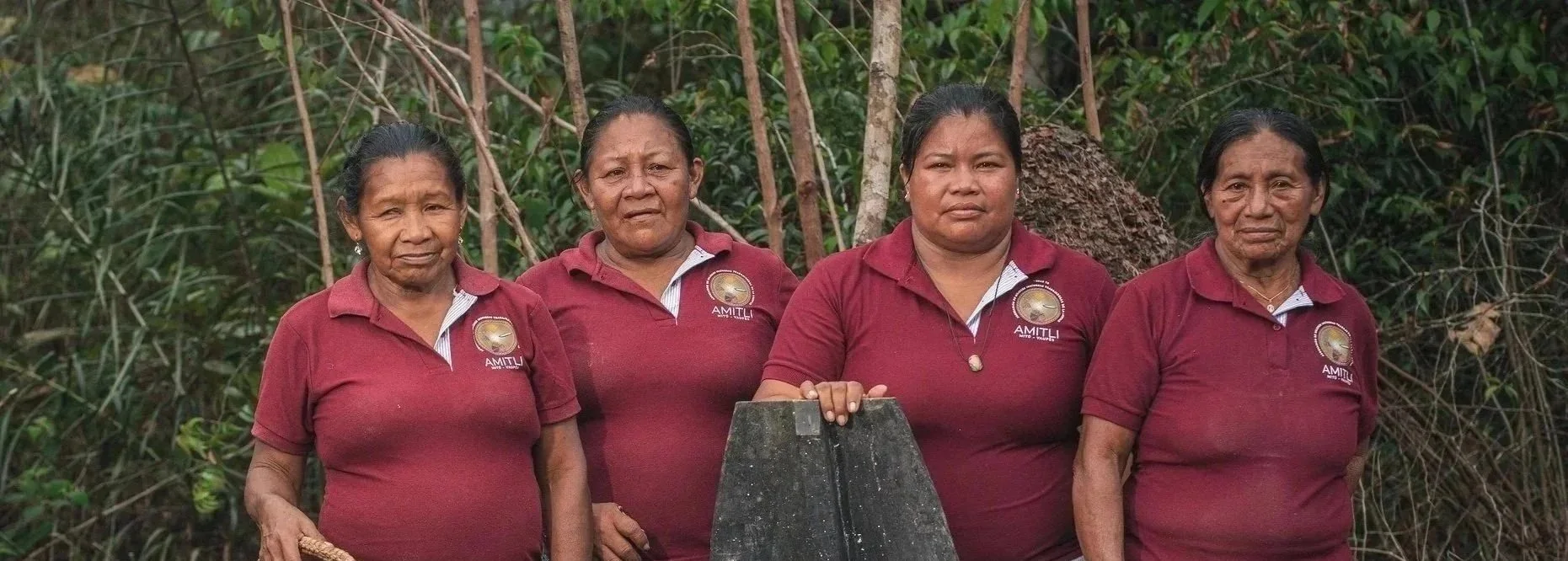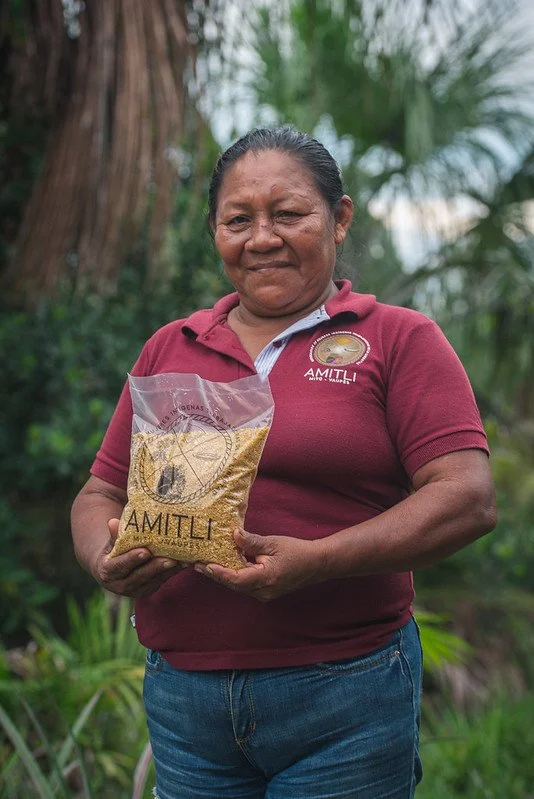At a Glance
Location: Colombia
Impact Areas: Food, Sustainable Income, Environment and Climate Change
People Supported:
Women, Indigenous Peoples
NESsT Program: Amazonia Initiative
Joined NESsT Portfolio:
2024
Overview
Asociación de Mujeres Indígenas Trabajadoras de La Libertad (AMITLI) is a women-led association in the remote rural area of the Vaupés in the Colombian Amazon – a region marked by poverty, lack of infrastructure, and the presence of armed groups.
AMITLI brings together 29 women and one man from the Cubeo, Desano, Tucano, Siriano, and Yuturi, Indigenous communities, with the mission to share the rich culinary and cultural heritages of their peoples while creating sustainable livelihoods and conserving ancestral knowledge.
One of AMILTI’s main business lines is the sale of fariña – a nutrient-rich coarse flour obtained from bitter yuca (Manihot esculenta). Each member of AMILTI produces fariña at home using yuca grown following a traditional Indigenous agricultural system, known as chagra. Unlike industrial or monoculture farming, the chagra promotes crop rotation, biodiversity, and sustainable farming practices. It not only provides nutritional food for local families but also reflects deep spiritual and ecological values, where traditional knowledge is passed down across generations through the observation of nature and the interconnectedness of all natural systems.
Fariña is a staple ingredient of many local dishes. AMILTI also supports its members to prepare and sell traditional meals made with fariña at local markets and public and private events. This activity both provides them with an additional income stream and strengthens the visibility of their culinary heritage.
By coming together to sell food products they had originally marketed individually, the members of AMITLI have reduced transport costs, standardized product quality and pricing, and expanded their reach in local markets and funding opportunities.
Through the fair and sustainable trade of fariña and other chagra products, the women of AMILTI earn dignified incomes which allow them to support their families while reinforcing a way of life that respects the forest and deep-rooted Indigenous traditions. Together, the members of AMITLI collectively protect around 45 hectares of biodiverse land through this organic, rotative agricultural model.
Results & Impact
30
members
99%
of whom are women
4
Indigenous women employed by AMITLI with formal contracts by 2027
100%
women-led enterprise
“Thanks to NESsT’s technical and financial support, more people across nearby communities now recognize our work and have begun bringing their products to us directly. We’ve managed to engage new producers who, in the past, sold under uncertain conditions, sometimes standing in the rain without knowing if they’d return home with unsold goods. We’ve improved our sales, enhanced storage and processing at our central facility, and strengthened not only our business but also our members and their families – many of whom have reinvested earnings into their own small ventures, taking real steps toward economic independence. ”
NESsT Investment
NESsT’s investment will support AMITLI to construct a collection and processing center for fariña, allowing it increase its cassava processing capacity and meet the growing demand for fariña products. Over the next three years, the association expects to increase its production by an average of 20% annually, increasing the number of women it supports and their income opportunities.
AMILTI will also open a traditional food restaurant in the town of Mitú to establish a steady revenue stream from this business line. By leveraging their strong reputation and increasing number of tourists to the region, they anticipate a consistent flow of diners. The space will also serve as a direct sales point for chagra products (plantain, corn, cocoa, pineapple, lulo, various kinds of chili peppers, etc.) produced by association members.
NESsT will support AMITLI's management team to develop a three-year strategic growth plan with defined milestones. This will include putting strategies in place to grow its customer base, diversify its products, and form partnerships to strengthen the supply chain and broaden social impact.










